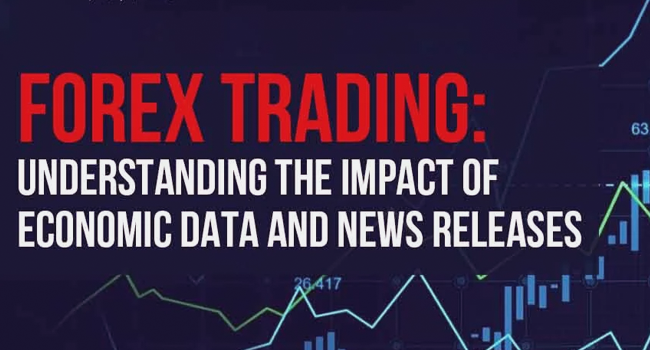How to Stay Disciplined in Forex Trading
Forex trading is an exhilarating yet challenging endeavor that demands a high level of discipline. It is the discipline that separates successful traders from the rest. In this article, we will explore how to stay disciplined in forex trading, ensuring you make informed decisions and safeguard your investments.
The Importance of Discipline in Forex Trading
Discipline is the cornerstone of forex trading. It means adhering to a structured approach to trading decisions, managing risks, and controlling emotions. Disciplined traders are less likely to make impulsive, emotionally driven trades and are better equipped to handle market fluctuations.
Setting Clear Goals and Objectives
Before you even make your first trade, it’s crucial to set clear goals and objectives. Define what you want to achieve in forex trading, whether earning a consistent income, building wealth, or simply learning the ropes. These goals will serve as your guiding light and motivation.
Creating a Trading Plan
A well-thought-out trading plan is your roadmap in the forex market. It should outline your strategies, risk tolerance, entry and exit points, and money management rules. Having a plan in place will help you avoid making hasty decisions.
Risk Management
Risk management is integral to the forex trading discipline. Determine the maximum amount of capital you will risk on a single trade, typically at most 2-3 % of your total trading capital. Put stop-loss orders in place to guard your assets and reduce any losses.
Sticking to Your Strategy
Create a trading plan that fits your objectives and level of risk tolerance. Once you’ve established a method, follow it religiously. Refrain from altering strategies in reaction to transient changes in the market.
Dealing with Emotional Challenges
Forex trading can be emotionally taxing, especially during losing streaks. Acquire emotional self-control and maintain composure. Steer clear of impulsive decisions motivated by greed or fear. You can keep your composure by practicing mindfulness and deep breathing.
Continuous Learning and Improvement
The forex market is dynamic, and it’s essential to keep learning. Stay updated on market trends, news, and economic events. Continuously refine your trading skills and adapt to changing market conditions.
Staying Informed About Market Trends
Knowledge is power in forex trading. Keep yourself informed about economic indicators, geopolitical events, and other factors that influence currency markets. Making better selections will be aided by staying informed.
The Role of Patience
Patience is a virtue in forex trading. Don’t rush into trades or expect immediate results. Be patient and let your businesses develop over time. Avoid the urge to overreact to short-term fluctuations.
Avoiding Overtrading
One of the biggest pitfalls for new traders is overtrading. Trade sensibly and avoid taking on more than you can handle. Refrain from overtrading and adhere to your trading plan.
Maintaining a Trading Journal
Maintaining a trading log is an excellent method to monitor your progress. Record your transactions, tactics, and feelings related to each deal. You can find areas where you need to improve by reviewing your journal again.
Accountability and Self-Assessment
Hold yourself accountable for your trading decisions. Regularly assess your performance and identify areas to enhance your trading skills. Seek constructive feedback from experienced traders.
Surrounding Yourself with Support
It’s essential to have a support network in forex trading. Connect with other traders, join forums, or seek guidance from mentors. Surrounding yourself with support can provide valuable insights and emotional stability.
The Psychology of Discipline in Forex Trading
While the technical and analytical aspects of Forex trading are crucial, an often overlooked yet equally vital component is the psychology behind disciplined trading. Mastering the psychology of trading can significantly impact your ability to stay disciplined and make informed decisions in the foreign exchange market.
Emotion Management
Forex trading involves a great deal of emotional interaction. Greed and fear can cause people to act rashly and take unwarranted risks. Regardless of changes in the market, skilled traders can control their emotions and adhere to their trading strategy.
To achieve emotional discipline, consider implementing the following strategies:
Mindfulness:
Practice being fully present in the moment while trading. Having calm and concentration can be aided by this.
Stress Reduction Techniques:
During trading, deep breathing and meditation can assist in lowering tension and anxiety.
Objective Analysis:
Base your trading decisions on data and analysis rather than emotions. When fear or greed creeps in, remind yourself of your trading plan and risk management rules.
Handling Losses
Losses are an inevitable part of trading forex, and how you respond to them will define your level of success. Trading losses are chances for disciplined traders to develop and learn. They do not pursue losses or take unwarranted chances in an attempt to recoup them.
Set Stop-Loss Orders:
Always use stop-loss orders to limit potential losses on each trade. This ensures that a single transaction doesn’t have a significant impact on your overall capital.
Learn from Mistakes:
After a losing trade, conduct a thorough analysis of what went wrong. This analysis can help you avoid making the same mistakes in the future.
Stay Composed:
Instead of panicking after a loss, remain composed and focused on your long-term trading goals. Remember that losses are a part of the game.
Discipline Through Education
A well-rounded education in Forex trading can significantly boost your discipline. Knowing enables you to make thoughtful choices and refrain from rash ones. Think about the following instructional techniques:
Continuous Learning:
Stay updated with the latest market trends, economic news, and trading strategies. Attend webinars, read books, and engage with the trading community.
Simulated Trading:
Practice trading in a simulated environment with virtual funds to hone your skills and test your discipline in a risk-free setting.
Mentorship:
Seek guidance from experienced traders who can share their knowledge and insights. Mentorship can accelerate your learning curve and help you avoid common pitfalls.
Maintaining Discipline in Volatile Markets
The Forex market is known for its volatility. Sudden price swings and unexpected events can test your discipline. In such circumstances, it’s essential to remain steadfast in your approach.
Critical strategies for maintaining discipline in volatile markets include:
Stick to Your Plan:
Even in turbulent times, adhere to your trading plan. Your plan should account for various market scenarios, including high volatility.
Risk Management:
During periods of volatility, reduce your position sizes to manage risk effectively. This can protect your capital from substantial losses.
Stay Informed:
In volatile markets, stay updated on economic events and geopolitical developments that can impact currency prices. Being informed allows you to make more strategic decisions.
Conclusion
Staying disciplined in forex trading is a continuous journey. By setting clear goals, creating a trading plan, managing risks, and maintaining emotional control, you can increase your chances of success. Remember that discipline is the key to consistent profitability in this dynamic market.
FAQs
How can I control my emotions when trading forex?
Emotional control can be achieved through mindfulness techniques, breathing exercises, and experience. It’s crucial to remain calm and rational during trading.
What is the significance of a trading journal?
A trading journal helps you track your trading performance, learn from your mistakes, and improve your strategies.
How can I avoid overtrading in forex?
Set clear limits on the number of trades you make and stick to your trading plan. Avoid the temptation to make impulsive trades.
Why is patience necessary in forex trading?
Patience prevents impulsive decisions and allows your trades to develop over time, increasing the likelihood of success.
What role does continuous learning play in forex trading?
Continuous learning informs you about market trends, economic events, and evolving strategies, allowing you to adapt and make informed decisions.


